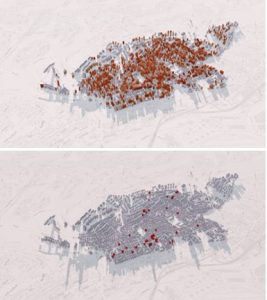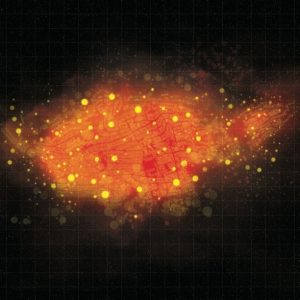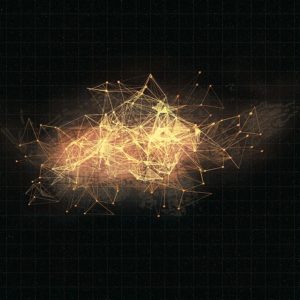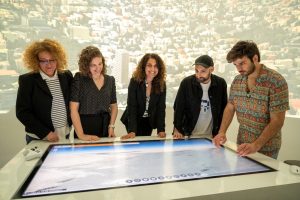Constellation of Loneliness
The Technion's Smart Social Strategy Lab presents urban isolation at Venice's 2023 Time Space Existence architecture biennale
The Technion Smart Social Strategy (3S) laboratory showcases its “Constellations of Loneliness” project at the Time Space Existence biennial architecture exhibition in Venice.
“Time Space Existence” is the European Cultural Centre (ECC) architecture exhibition at the Biennale di Venezia. Its 2023 edition draws attention to the emerging expressions of sustainability in its numerous forms, from focusing on the environment and urban landscape to the unfolding conversations on innovation, reuse, and community.
“Constellation of Loneliness” is an artistic project based on the data from Hadar neighbourhood, a low socioeconomic status neighbourhood with a high percentage of elderly citizens, many of them also immigrants. The project represents loneliness through a digital city model drawing on big data and AI simulation. Between 2017-2021, authorities recorded an unusually high rate of bodies found in a state of advanced decay in the Hadar neighbourhood. The absence of these people was not noticed by anyone for a considerable time. By visualizing the data sets surrounding this tragedy, viewers are invited to explore the fragments of a fragile and ambivalent reality floating through the anonymized numbers. The resulting image highlights the patterns of the database’s blueprint and its shadows. This data shadow resembles a celestial constellation of stars, separated by time and space, connected through the work of our imagination. The lines connecting the spots mark both the challenge of loneliness and the potential power of the community to reach out and bridge the distance.
“Constellation of Loneliness” can be viewed at Palazzo Bembo from 20 May to 26 November 2023.
The 3S Lab uses innovation to enhance urban resilience and achieve sustainable urban development. The group creates data-driven models of urban social life and makes them available to decision-makers and residents. By making these models accessible to the general public, it encourages civic participation. The group’s visualization theater projects these models, creating a space for assembly, learning, and dialogical development. This immersive experience allows participants to engage with the data and experiment with planning in a multi-layered and complex city model.
“Smart cities are an important modern-day breakthrough,” says Dr Meirav Aharon-Gutman, head of the 3S Lab and faculty member of the Technion Faculty of Architecture and Town Planning. “But it’s important to remember their limitations. Currently, the ‘smart city’ is all about infrastructure: surveillance cameras, traffic lights, and garbage collection. We believe that the city isn’t its infrastructure but its people and the connections they form. Loneliness is an important issue of city life; it’s a 21st-century epidemic. We must not ignore it.”
To address loneliness, Dr Aharon-Gutman explains, it must first be seen. On a personal level, we see and feel it, of course. But data-based visualization tools are required to handle it on an institutional level. “The tools we develop in the 3S Lab can provide social and municipal workers with relevant data about the city’s people, including the loneliest among them.” As a proof of concept, 3S Lab created a digital twin of the Hadar neighbourhood of Haifa, featuring 170 layers of data, including rent, number of people per apartment, homes of elderly citizens, community centres, and street dealer locations. This varied data allows municipal bodies and charitable organizations to identify problems and provide aid.






